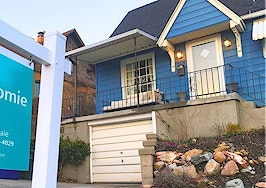- Agents should learn the benefits and details of the 203(h) program so they’re prepared to help clients who are recovering from a major disaster.
Few would argue that recovering from the devastating effects of a natural disaster is a daunting task. Millions of Americans in Texas, Florida, California and Puerto Rico, are currently experiencing the reeling effects from hurricanes, flooding, wildfires and other natural disasters.
How can we help them pick up the pieces and begin new lives?
As I see it, there is a clear opportunity to help homeowners begin the long process of recovery: Real estate agents can begin by learning the details of the Federal Housing Administration’s (FHA) 203(h) loan program. This was created to help people rebuild their home or purchase a new one.
Knowing the details of this program and its abilities to help current homeowners and potential homeowners will provide a trusted service to those sorely in need of assistance after their overwhelming loss.
The FHA 203(h) loan program makes it easier for homeowners in a Presidentially Declared Major Disaster Area (PDMDA) to begin a meaningful recovery by providing 100 percent financing to borrowers whose homes were completely destroyed or damaged to such an extent that reconstruction is required.
Renters whose primary residences were destroyed are included in the eligibility pool, and the 100 percent financing may make it possible for them to make the move to become homeowners.
Additionally, new purchase transactions aren’t required to be located in the area where the previous residence was located. That means real estate agents working outside of disaster areas should know about this program for any clients who must relocate.
Agents, learn the benefits and details of the 203(h) program so you’re prepared to help your clients who are recovering from a major disaster.
A few key points you should know:
- No down payment is required.
- FHA mortgage insurance premiums do apply, however, so borrowers should be aware of how that will impact their monthly payments.
- FHA mortgage limits also apply, and these vary by location, so this may not be the best product for all clients.
- Refinances of current properties are eligible, and homeowners can use the 203(h) in combination with the FHA’s 203(k) loan for rehabilitation and reconstruction.
- Renters (who were permanent residents of a damaged property) as well as current homeowners are eligible to use the 203(h) to purchase an entirely new residence, regardless of the location of the new property.
- The 203(h) loan must be generated within one year of the date that the disaster area is declared, and the property must be owner occupied.
- Single-family residences, some manufactured homes, and FHA-approved condominium units are eligible.
Like other FHA products, these loans can be especially attractive for those with challenging credit, as the minimum credit score required is just 500. Damage done to the credit report that is related to the effects of the disaster, including late payments on the previous mortgage, may be disregarded in the lending decision, as well.
Recovering from a major disaster is a long and difficult process. The positive news is that there are specific ways for real estate agents to help their clients.
First, master the basics of the FHA’s 203(h) program. It’s a critical first step for agents as you work to assist victims in finding a new home. Learn which of your lending partners offer this loan product and the requirements needed for lenders to provide the financing.
In spite of the devastating effects of the recent major disasters, I am confident in our ability as an industry to be an instrumental source of help for borrowers working to recover and rebuild their lives.
Ray Brousseau serves as president for Carrington Mortgage Services. Please follow Carrington on Twitter or LinkedIn.












